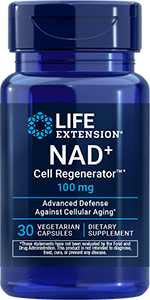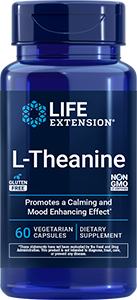
Newsletter
Newsletter
Over Half the World’s People Suffer from Nutrient Inadequacies

At least four billion people worldwide have insufficient intake of riboflavin (vitamin B2), folate, vitamin C and iron, according to a study appearing August 29, 2024, in The Lancet Global Health.1 Even worse, inadequacies of vitamin E, calcium and iodine were estimated to exist in at least five billion individuals.
“Most people—even more than previously thought, across all regions and countries of all incomes—are not consuming enough of multiple essential micronutrients,” stated coauthor Ty Beal, PhD, of the Global Alliance for Improved Nutrition (GAIN). “These gaps compromise health outcomes and limit human potential on a global scale.”
Other nutrients were also severely lacking among many of the world’s people, including vitamin A, thiamin (vitamin B1), niacin (vitamin B3), vitamin B6, vitamin B12, magnesium, selenium and zinc. Men had greater inadequacy of vitamins A, C and B6, thiamin, niacin, magnesium and zinc compared with women in the same country and age group, and women had greater inadequacy of vitamin B12, iodine, iron and selenium.
As examples of risks associated with nutrient inadequacies, the authors remarked that vitamin A deficiency is the leading preventable cause of blindness and plays a key role in immunity. Healthy immune function also requires adequate zinc. The protective role of folate against neural tube defects and stillbirths is well known. Iodine is also critical for pregnant women and those who are breastfeeding.
“The public health challenge facing us is immense, but practitioners and policymakers have the opportunity to identify the most effective dietary interventions and target them to the populations most in need,” senior author Christopher Golden of the Harvard Chan School of Medicine remarked.
The research team utilized data from the Global Dietary Database, the World Bank, and dietary recall survey responses to compare requirements for 15 micronutrients with nutrient intake in 185 countries or territories in 2018. Men and women were separately analyzed according to 17 different age groups. Estimated nutrient intakes did not include fortified foods or vitamin and mineral formulas and generally show a higher prevalence of inadequacy than blood biomarker data suggests.
Products
Apply What You’ve Learned: Nutrient Deficiencies
- Deficient intake of necessary vitamins, minerals or protein leads to diseases such as beriberi, pellagra, scurvy and kwashiorkor caused, respectively, by severe deficiencies of thiamin (vitamin B1), niacin (vitamin B3), vitamin C and protein. While these deficiency diseases are uncommon in the developed world, nutrient insufficiencies are much more prevalent.
- Numerous studies published worldwide have found associations between low intake or blood levels of specific vitamins or minerals and an increased risk of specific diseases and/or premature mortality. These studies have often involved large populations, such as those that used dietary intake data from the National Health and Nutrition Examination Survey (NHANES) or UK Biobank.
- Consumption of nutritionally depleted foods and beverages may meet calorie intake requirements while leaving the consumer malnourished. The use of multivitamin/mineral preparations can make up for some of this deficit.
- Blood testing can aid in the identification of nutrients that are insufficiently consumed and assist in the development of a nutritional plan.
References
- Passarelli S et al. Lancet Glob Health. 2024 Aug 29.
Featured Life Extension Magazine® Article
Restore Hormone Balance in Menopause
By Heather L. Makar
Menopause symptoms usually start in a woman’s 40s, when the hormones estrogen and progesterone begin to decline. This can be accompanied by physical symptoms, such as hot flashes and night sweats, and psychological symptoms, including anxiety, depression and mood swings.
The herb fenugreek contains compounds that include protodiocin and trigonelline. Protodiocin converts to the hormone DHEA, which is a precursor of estrogen, progesterone and other hormones. Trigonelline binds to the cells’ estrogen receptors, mimicking the effects of estrogen.
A study that involved postmenopausal women who received fenugreek extract daily for 42 days experienced a 31.6% increase in estradiol (the active form of estrogen) as well as a 20.4% decrease in follicle-stimulating hormone (FSH), which becomes elevated during menopause.
Read Full Article
What's Hot
Health Concern
Supplements Boost Nutritional Adequacy Among Low Income Older Adults
The July 2023 issue of The American Journal of Clinical Nutrition reported poor diet quality and nutrient intake among older participants in the Supplemental Nutrition Assistance Program (SNAP) as well as among older nonparticipants who qualified for SNAP benefits; however, including dietary supplement intake in the analysis improved nutritional inadequacy risk.

Eye Health
Lifestyle interventions such as exercise, avoiding smoking and limiting intake of refined sugars have been demonstrated to significantly reduce the risk of several types of age-associated eye disease.
Related Life Extension Magazine® Articles

What’s Missing from Most Multivitamins
Millions of Americans take a multivitamin, including 68% of seniors. Yet many older adults have inadequate intake of essential nutrients.

Fortify Your Life
Citing data from the Centers for Disease Control, Dr. Tieraona Low Dog states many Americans are deficient in vital nutrients. In her book Fortify Your Life, Dr. Low Dog provides an enlightened guide to the supplements she hopes will help counter the CDC data.
Highlight
The Life Extension Health News Team combs peer-reviewed scientific journals and other publications for the latest findings about nutrition and vitamins, as well as advancements in anti-aging research. All our news articles are medically reviewed to ensure accuracy.
Learn MoreLife Extension Magazine® Issue Now Online
A remarkable number of healthy-longevity findings have been published over the past 18 months.




